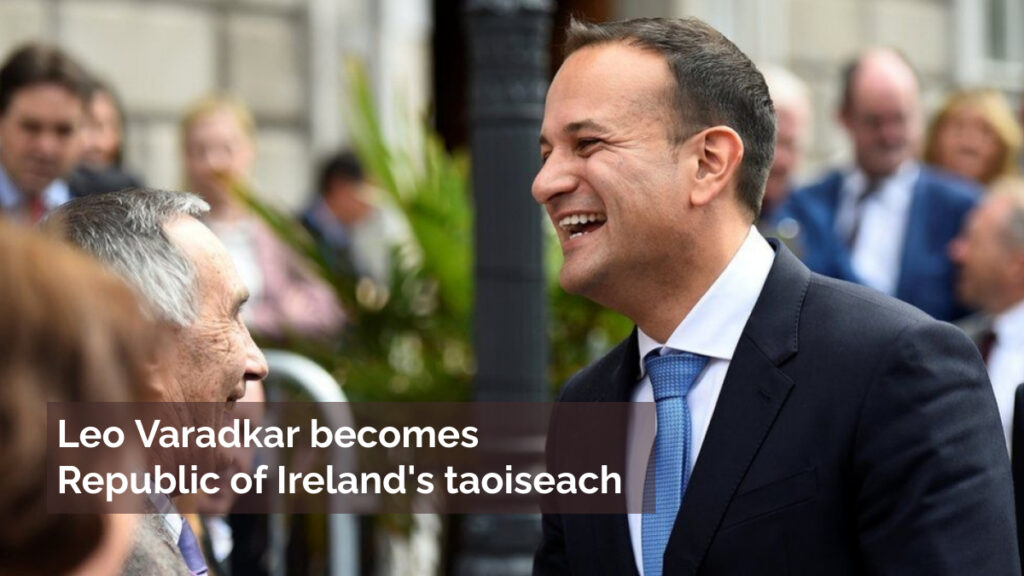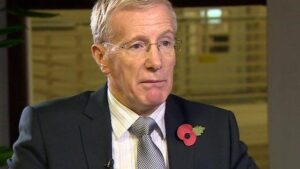Leprechauns or Unicorns, there’s little Magic

With the United Kingdom seemingly intent on taking unilateral action to ensure largely unfettered trade between Great Britain and Northern Ireland, voices have again been raised suggesting that such action would necessitate a hard border on the island of Ireland in order to protect the European Single Market.
The United Kingdom is being accused (again) of magical thinking, believing in Unicorns and that unfettered trade is impossible without the whole United Kingdom fully and permanently aligning with European Union rules and regulations.
However, is this true?
Is it possible for GB/NI trade to operate largely unfettered without threatening the EU Single Market?
Well to answer this question I shall refer to the oral evidence provided to the Irish Parliament (Dail) by the Head of Ireland Revenue (Customs) Niall Cody on 25th May 2017.
Please note that this evidence was provided when Ireland still expected the border between the UK and EU to operate on the island of Ireland. You can read it all here

How does Ireland currently operate Customs for 3rd countries?
“In 2016, 6% of import declarations were checked & less than 2% physically checked. The vast majority of these checks were carried out in approved warehouses & other premises with very small no at a port or airport.”
Two points here. First on the number of checks. 94% of imports are not checked at all. Nothing. Not even the paperwork. Less than 2% of all imports are actually physically checked.
BUT NOTE ALMOST ALL OF THESE CHECKS ARE MADE AWAY FROM THE BORDER.
When the UK suggested that checks could be made away from the border that was described as unicorn thinking. However, the head of Ireland revenue confirms that this is exactly how Ireland Revenue largely operates today.
How does Ireland revenue achieve this feat?
“The low level of import checks is the result of pre-authorisation of traders, advance lodgement of declarations and an extensive system of post-clearance checks, including customs audit, which are carried out at traders’ premises.”
So Ireland achieves this through trusted trader schemes & computer led intelligence checks made away from the border.
Sounds awfully similar to the UK “unicorn thinking” plans doesn’t it?
Mr Cody goes on to explain:
“Authorised economic operators, AEOs, have a special status in the system and under agreed protocols are allowed to operate greatly simplified customs procedures. There are currently 133 AEOs, which account for 82% of all imports and 89% of exports.”
133 AEO’s covering 82% of imports? But doesn’t that point out a flaw in the UK model?
Surely cross border trade would include lots of smaller companies who don’t have AEO status?
Well Mr Cody has an answer to that as well:
“The new customs code opens the possibility for smaller traders to receive this authorisation and we expect the number of AEOs to rise sharply, perhaps by a factor of ten, with the addition of a wide range of traders, including smaller businesses.”
So Ireland Revenue stated in May 2017 that the EU customs rules allow for a more than 10 fold increase in the number of Trusted Traders with little or no checks and all away from the border.
Perhaps the UK plan was not so unicorn after all?
But what about UK plans for no physical paperwork?
“The Union customs code envisages development of paperless customs systems, managed entirely on electronic processing. Revenue’s objective is to maximise free flow of goods. We are aiming to have the most advanced systems possible & maximise the simplification.“
So in May 2017 Revenue Ireland seemed to argue that the UK’s plan for a frictionless border was very much not wishful thinking.
What else did Mr Cody have to say on the subject?
“The way the customs code works is that it provides for simplified procedures, authorised economic operators and the checking is done for goods at the destination point. It is not brought somewhere to have check carried out. When we talk about approved warehouses, we are talking about logistics operations that support goods transport. Goods go to destination & we facilitate that…by having a Revenue presence to carry out physical examination.”
What about the need for border infrastructure on the island of Ireland?
“Very soon after we began considering this issue nine months ago, we concluded that the diversion and impact of having to call to a designated Revenue customs post does not make sense and the volumes would not justify it. If the Deputy had asked me that 9 months ago, I probably would have visualised a map with the necessities because this is how it worked prior to the SM. Now, the customs code works provides for simplified procedures, AEO’s & checking is done for goods at destination point.”
So no need for any border infrastructure and the EU customs code allows for simplified procedures, trusted traders and checks away from the border. ?
“We do not envisage physical checks taking place at Revenue offices. Currently, 2% of goods are selected for physical checks. There is a series of rules and risk indicators involved in being selected.”
But just because Ireland currently inspect less than 2% of ROW imports that doesn’t necessarily mean the risk profile is the same for GB/NI trade.
What did Cody think?
“From a customs point of view, it is very unlikely that there will be anything approaching 2% referral for physical goods in regard to the type of goods that move between the North and the South. It is unlikely that goods of that type would be selected for physical examination, particularly if the destination was an approved operator.”
But what about the threat to the EU SM of such a system?
The EU tells us NOW that the risks are too high.
What was Cody’s view in May 2017?
“Much of what is transported in both directions is construction material. There is also agri-food produce. Something that will distort the EU market will not be sourced from Northern Ireland into the South.”.
So in May 2017 Head of Ireland Revenue gave evidence to Dail stating:
- No need for a hard border on island of Ireland.
- No need for physical infrastructure or Paperwork.
- That very small no of checks could be done away from the border.
“Something that will distort the EU market will not be sourced from Northern Ireland into the South.”.
So what happened after 25th May 2017 to cause Ireland to change its tune?
To start arguing that all of the above was now impossible?
Maybe this just three weeks later?




